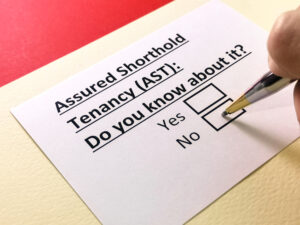In the past, letting agents did not need to be members of a government-approved redress scheme, meaning if a tenant complained about their letting agent and the two parties weren’t able to resolve the issue, no further action could be taken. With the new legislation, you will be able to use the scheme’s dispute resolution service if your letting agent is unable to resolve your complaint within eight weeks.
Introduction
Numerous letting agents adhere to a business philosophy based on honesty, integrity, and hard work. Their main concern is helping you find the right property to suit your needs, maintaining memberships in professional organisations, adhering to their legal responsibilities to landlords, and providing professional and friendly service to their tenants.
According to letting agent reviews, a third of tenants don’t trust their letting agent. There is no regulation of the private renting sector, which has led to a lack of mediation with landlords and extortionate fees being charged to tenants.
The Law
All letting agents must join one of three independent redress schemes approved by the government by October 1st, 2014.
- The Property Ombudsman (TPO)
- Ombudsman Services Property
- The Property Redress Scheme
A redress scheme provides free services for disputing parties, and there is always a binding decision made by the scheme.
In what sense does the law apply?
In the past, letting agents did not need to be members of a government-approved redress scheme, meaning if a tenant complained about their letting agent and the two parties weren’t able to resolve the issue, no further action could be taken. With the new legislation, you will be able to use the scheme’s dispute resolution service if your letting agent is unable to resolve your complaint within eight weeks.
When to contact your landlord
A complaint about the letting agent should be made to your landlord if any of the following occurs:
- Poor customer service in general
- The cost of the service or its reasonableness
- Tenancy deposits
- Landlord-related issues
Your tenancy agreement should include the name and address of your landlord. The letting agent has a legal obligation to provide you with the landlord’s name if you haven’t requested it in writing yet. It is still imperative that you receive the contact information for the landlord, even if it is a company.
You should follow the formal complaint process if you are dissatisfied with the landlord’s response, or it is taking too long.
Taking your complaint to your letting agent
Your first step is to follow the complaints procedure of your letting agent. If their website does not have these details, you can contact their office directly. Following up on your complaint, the letting agent should conduct an appropriate investigation, send a written response within 8 weeks, and indicate what action they will take. In the event that you are not happy with the outcome, the letting agent has refused to resolve your complaint or has ignored it entirely, you should approach a redress scheme to which they belong.
Making a complaint to the redress scheme
You can get the details of your letting agent’s redress scheme from their website or ask them about it. Window stickers displaying their memberships are often displayed by letting agents. The redress scheme can only be accessed after 8 weeks from when you made your complaint or when you have received the final correspondence from the letting agent regarding the dispute, and you must follow the time-limit requirements.
The most common reasons for complaints
For issues related to breaches of letting agent codes of conduct, you are entitled to file a formal complaint. A redress scheme will help you resolve issues such as:
- Poor or inefficient service
- Lack of transparency and hidden tenant fees
- Incorrect descriptions of properties
- Issues relating to the refund of holding deposits
- Accounts that are inaccurate
- Not paying rent to your landlord
If a letting agent is not a member of a redress scheme
Your letting agent is breaking the law if they are not a member of a redress scheme. An agency can be investigated and prosecuted by your local council for a fine of up to £5000.
Why you should choose a good letting agent
As a precaution, choose your letting carefully and follow a vetting process that takes into account the following things.
Does the agent belong to an independent trade organization? Using the following links, you can verify that your letting agent is registered:
Are there any official websites for the letting agents? A section with important information for tenants must be included on the website, along with a complaints procedure. Check out the website for details about how they deal with complaints and problems from tenants.
Find out from other tenants how they felt about this letting agent’s service and whether they have dealt with them before or currently.
It is possible to find reviews of your letting agent on many letting agent rating websites.
What to do if you need help
You can contact Citizens Advice if you want to make a complaint about your letting agent.
http://www.citizensadvice.org.uk/
There is also comprehensive information on the Shelter website about letting agent complaints.
http://england.shelter.org.uk/get_advice/complaints/complaints_about_letting_agents
Estate Agents Act 1979 (EAA) regulations permit both Trading Standards and the Office of Fair Trading to close down an estate agency if they believe the business to be unfit for the job.
http://www.tradingstandards.gov.uk/
https://www.gov.uk/government/organisations/office-of-fair-trading
Disclaimer
The purpose of this article is to provide guidance. The information provided should be used for research purposes, and not as a basis for bringing legal action. No legal advice is provided by The Tenants Hub, and The Tenants Hub’s content does not establish a client-solicitor working relationship.


